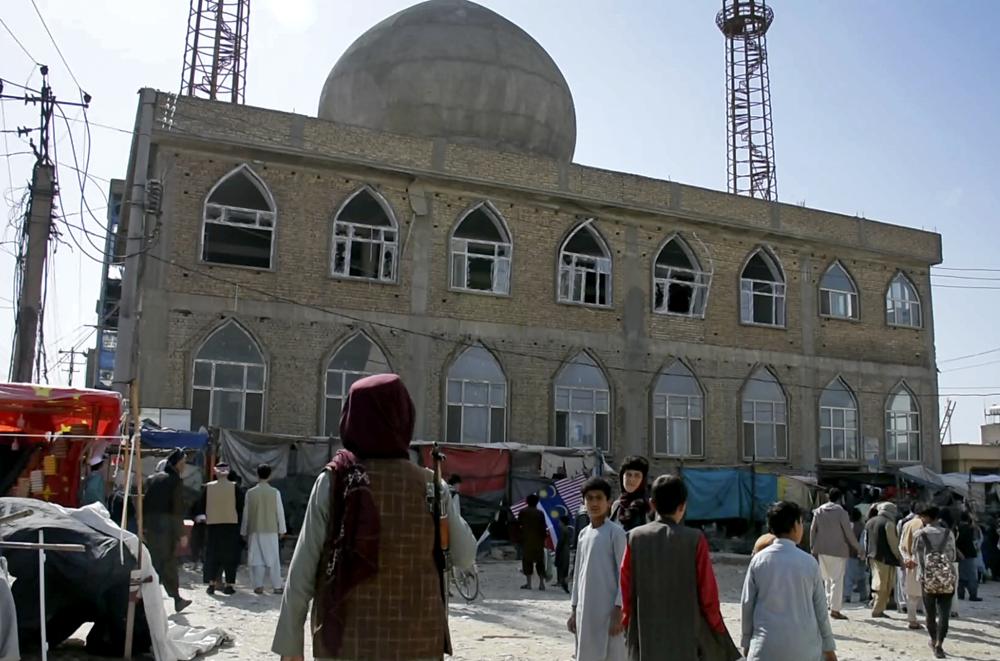At least 33 people were killed in a bomb attack on a mosque and religious school in northern Afghanistan on Friday, including students at the school, a Taliban official said.
The incident took place in the city of Imam Saheb, in Kunduz province, and also injured 43 people. No organization has so far claimed responsibility for the terrorist act, but the affiliate of the Islamic State of Afghanistan (IS-K) claimed responsibility on Friday for a series of bomb attacks that occurred the day before. The worst was an attack on a Shi’ite mosque in northern Mazar-e-Sharif in which at least 12 Shi’ite Muslim worshipers were killed.
Friday’s bombing is the latest in a series of terrorist attacks in Afghanistan. Since coming to power last August, the Taliban have been fighting the Islamic State IS-K in Khorasan province, a security challenge to the Afghan government. Last November, the Taliban’s intelligence unit carried out an offensive against suspected IS-K hideouts in the eastern province of Nangarhar.
The explosive that devastated the Sai Doken mosque in Mazar-e-Sharif was hidden in a bag left inside among dozens of worshipers. While they were in prayer, it exploded.
The Taliban say they have arrested a former IS-K leader in the northern province of Balkh, of which Mazar-e-Sharif is the capital. Zabihullah Noorani, head of the Information and Culture Department in Balkh province, said Abdul Hamid Sangaryar was arrested in connection with Thursday’s mosque attack.
IS-K had been relatively inactive in Afghanistan since last November, but in recent weeks it has intensified its attacks in Afghanistan and neighboring Pakistan, targeting Shiite Muslim communities reviled by Sunni radicals.
Earlier this month, two bombs exploded in the Shiite neighborhood of Dasht-e-Barchi in Kabul, killing at least seven students and wounding several more.
IS-K established its headquarters in eastern Afghanistan in 2014 and has been blamed for some of the worst attacks in Afghanistan, including the assault on a maternity hospital and a school that killed more than 80 girls in 2021. , months before the Taliban seized power.
IS-K also claimed responsibility for a brutal bombing outside Kabul International Airport in August 2021, killing more than 160 Afghans who had been pressing to enter the airport to flee the country. Thirteen US servicemen were also killed while overseeing the final US withdrawal from Afghanistan.
In recent months, IS-K has also stepped up attacks in neighboring Pakistan, targeting a Shiite mosque in the northwestern city of Peshawar in March. More than 65 worshipers were killed. It has also claimed several attacks against the Pakistan Army. In the central Pakistani city of Faisalabad in Punjab, local police on Thursday issued a threat warning, saying “IS-Kha has been known to plan to carry out terrorist activities in Faisalabad,” and advised the people who “exercise extreme vigilance.” The police warning did not provide further details.
Meanwhile, on Thursday night a Pakistani soldier was killed in the southwestern province of Balochistan after militants raided a security post. The area has come under attack from both IS-K and Pakistani Taliban militants known as Tehreek-e-Taliban Pakistan (TTP), also based in neighboring Afghanistan.
The safe havens of militant groups in Afghanistan have raised concerns in Pakistan. Earlier this month airstrikes inside Pakistan killed at least 20 children, according to the United Nations Education Fund (UNICEF). Pakistan has not confirmed the attacks, but has warned the Afghan Taliban to stop using its territory.
In separate incidents, five children were killed on Friday in Afghanistan’s northern Faryab province while playing with unexploded ordnance.
Associated Press/OnCuba.

















